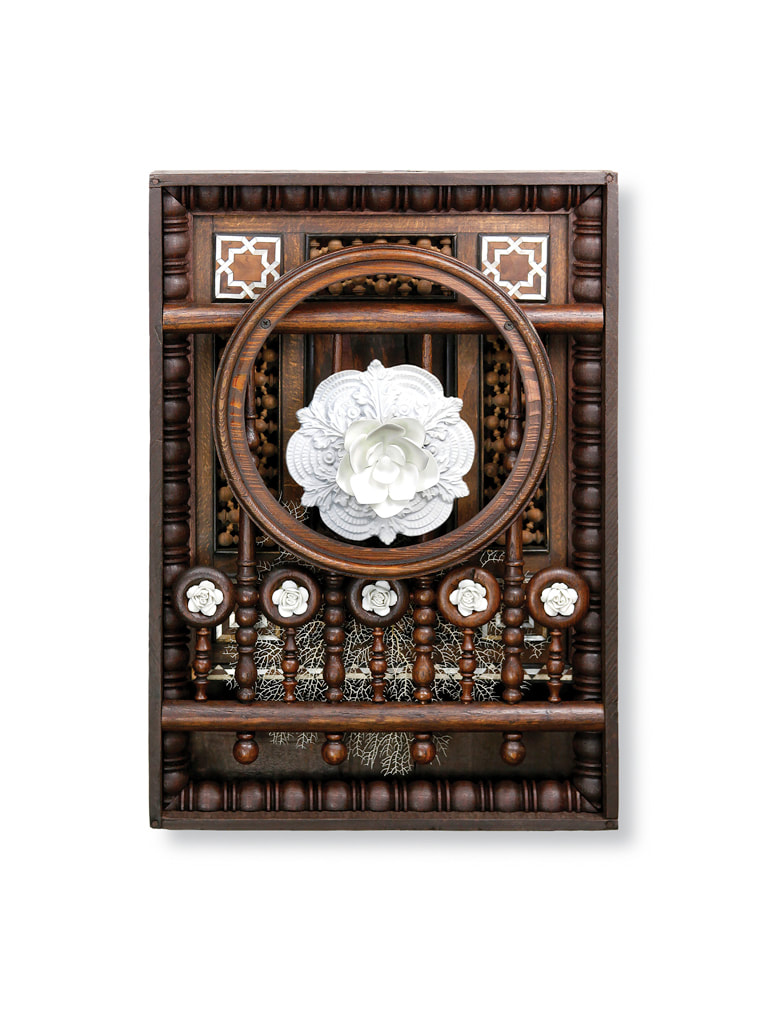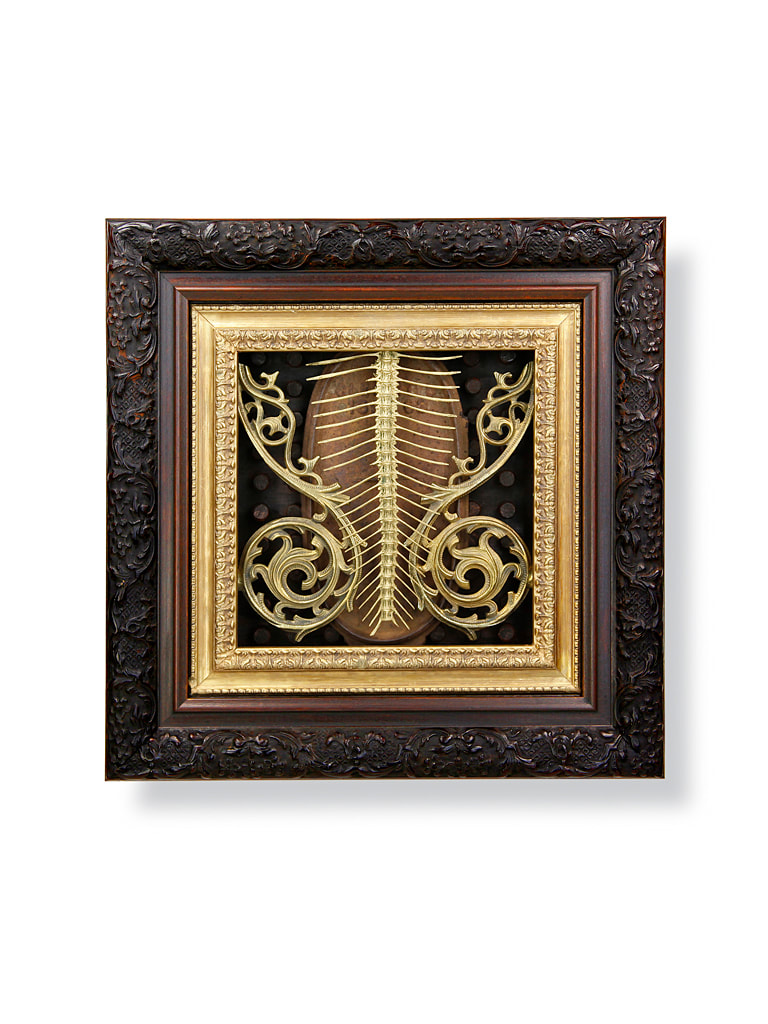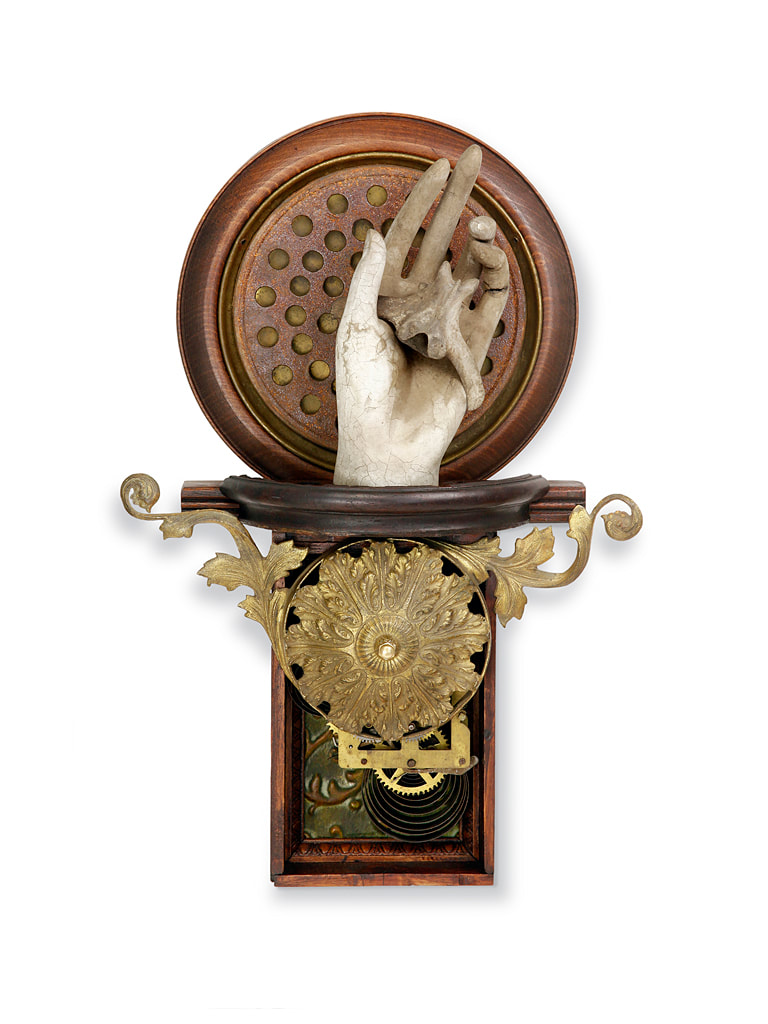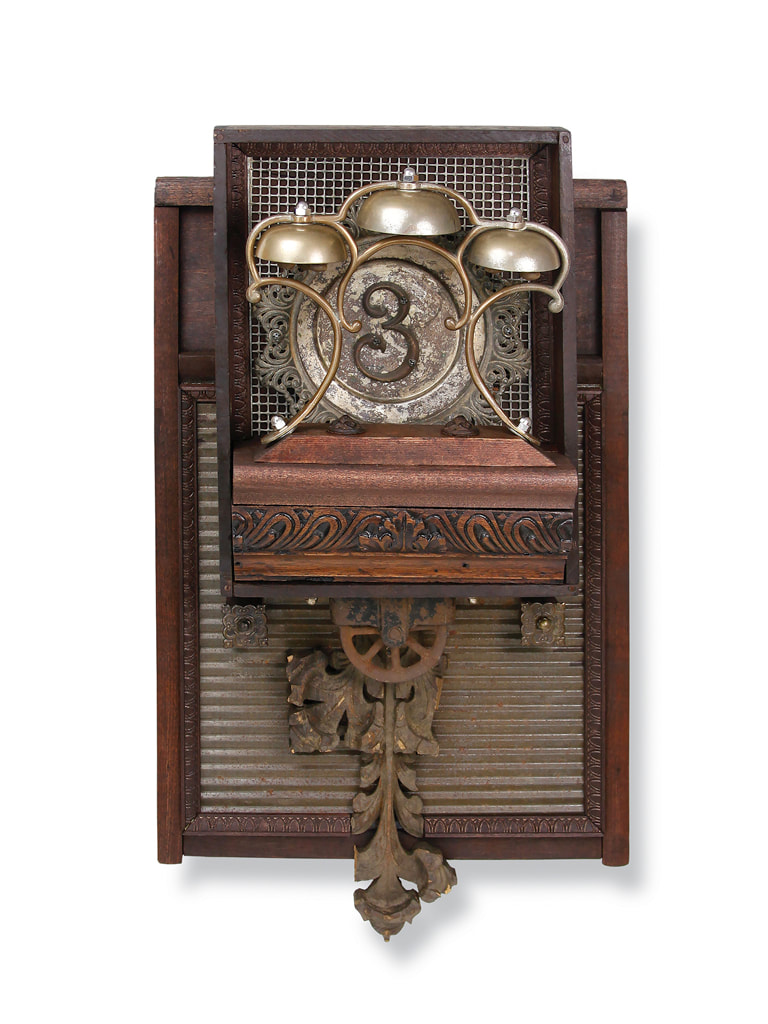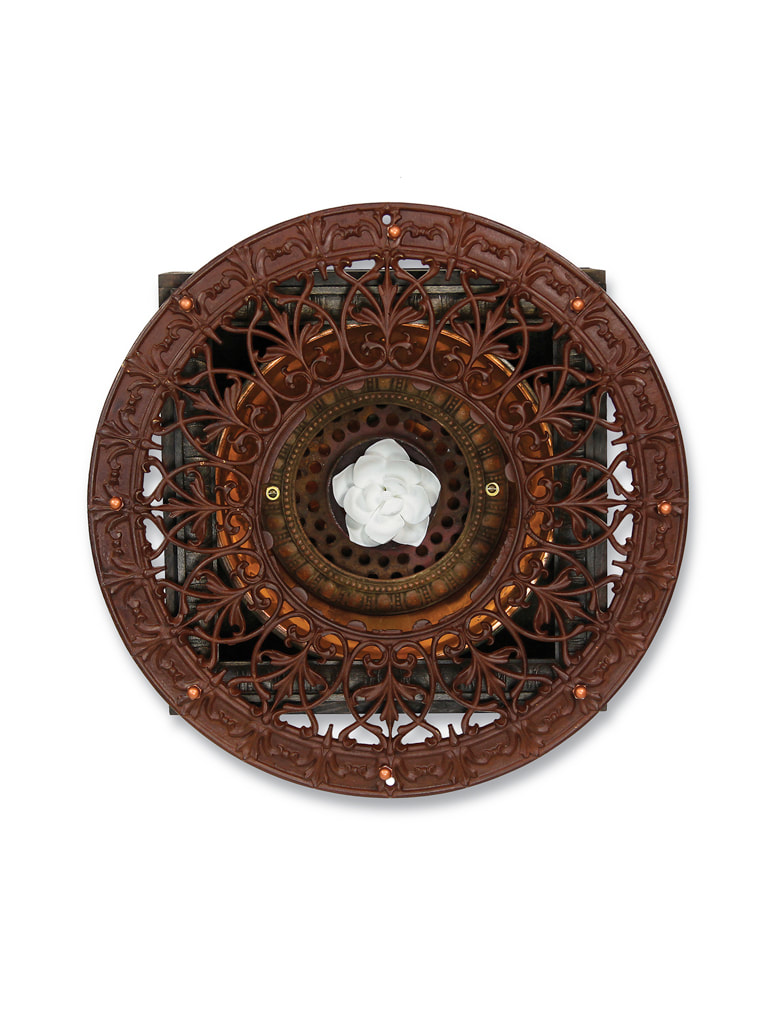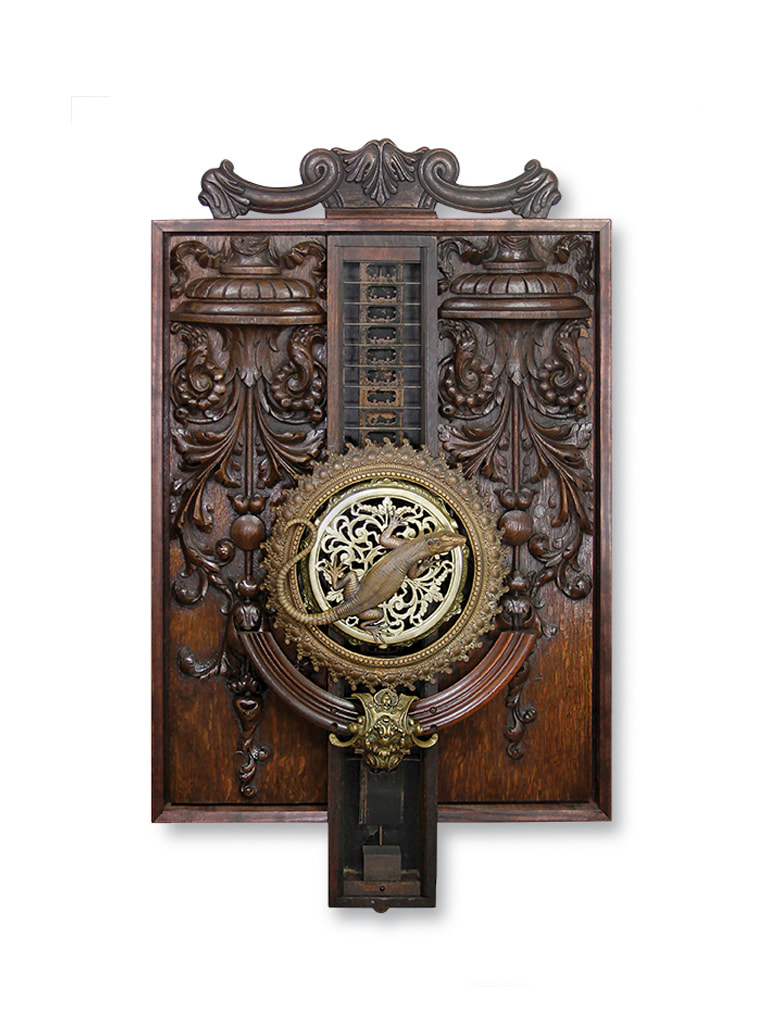Robbii Wessen
Foundlings: Objects of Some Unknown History or Purpose
click images for full view
Artist Statement
"I take a very methodical approach to creating my assemblages. Found objects are arranged in a formal style: balance, composition and texture are integral elements of my work that act as a means to explore the redemptive qualities of discarded material. My limited color palette comes from the materials used, such as: aged, dark wood; brass, silver and gold leaf; machine parts; rusted metal; glass and natural elements. With artificial mechanisms, parts of unknown objects and bits of nature, each assemblage speaks of some unknown purpose or history. Ultimately, in contrast to their humble origins, these assemblages transcend the found quality of their individual parts to become objects of beauty.
I have no illusions of wanting to be “new”. I only want to put forward work that is original. My goal is to have clarity of vision that when I put a piece together, it is unique and stands by itself as a work of art and as a body of work. My assemblages become little shrines to unknown deities or reminders of memories familiar but long past. They speak not only of some unknown history but they speak of my history as well. I call them 'Foundlings'."
I have no illusions of wanting to be “new”. I only want to put forward work that is original. My goal is to have clarity of vision that when I put a piece together, it is unique and stands by itself as a work of art and as a body of work. My assemblages become little shrines to unknown deities or reminders of memories familiar but long past. They speak not only of some unknown history but they speak of my history as well. I call them 'Foundlings'."
Wessen’s family was influential in his decision to pursue art. His father was a commercial artist, and by the age of six, Wessen was drawing, using an airbrush, and trying his hand at lettering. At an early age, he and his twin brother chose not to compete. His brother became a rocket scientist, and Wessen credits his brother’s insights as integral to his own development, as he went on to become a successful graphic designer. I
n 2002, Wessen went to Burning Man, a bohemian arts festival in the Nevada desert, culminating in the burning of a human effigy. It proved to be a life-changing experience for the artist. Inspired by the abundance and intensity of creative energy, Wessen created his first assemblage: an homage to the event in the form of a shrine.
Wessen’s development as an artist was also informed by concepts of Eastern Mysticism, such as the inevitability of the life cycle, and Taoist contemplations of contrast and duality, which he has harnessed to heighten the sense of beauty and the passage of time in his work.
n 2002, Wessen went to Burning Man, a bohemian arts festival in the Nevada desert, culminating in the burning of a human effigy. It proved to be a life-changing experience for the artist. Inspired by the abundance and intensity of creative energy, Wessen created his first assemblage: an homage to the event in the form of a shrine.
Wessen’s development as an artist was also informed by concepts of Eastern Mysticism, such as the inevitability of the life cycle, and Taoist contemplations of contrast and duality, which he has harnessed to heighten the sense of beauty and the passage of time in his work.
